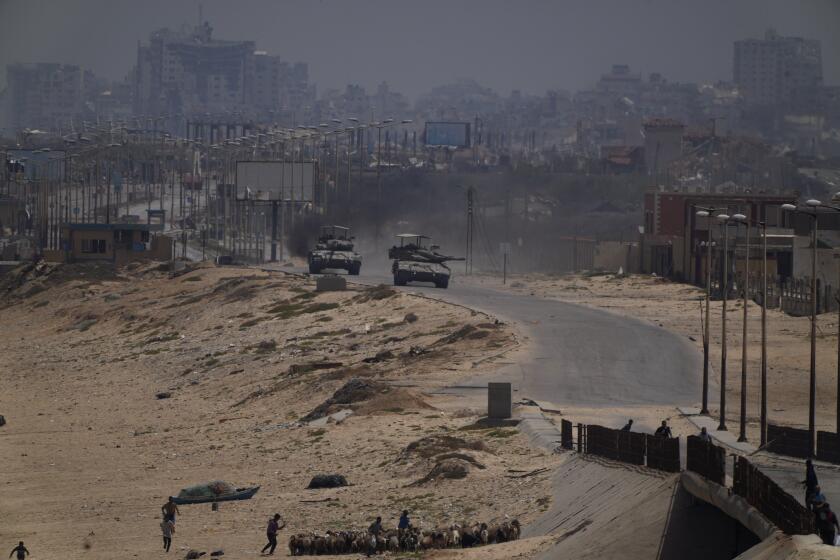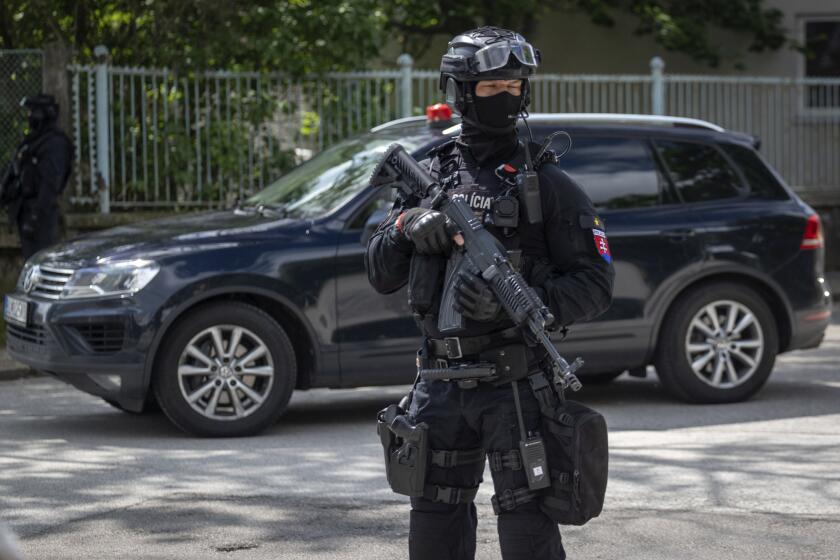‘Dirty Bombs’ Drop Dilemma on West
The United States nabbed a U.S.-born citizen who converted to Islam, joined Al Qaeda and, so the government claims, plotted to attack the U.S. with a primitive radioactive device--a high explosive encased in a radioactive shell that upon detonation would spread radioactivity over a limited but densely populated area.
There are other ways that a terrorist state can cause the same--or worse--mayhem.
Iraq, for example, could deliver a specific radioactive agent--produced in a simple, cheap nuclear fission reactor--via a ballistic missile that deposited pinhead-size radioactive pellets over a vastly larger area.
Not only is this diabolical scheme technically simple, but there are no international treaties forbidding or constraining it. (Nuclear arms control treaties have focused solely on nuclear explosives.)
There would be no massive urban devastation and no long-lasting contamination. The purpose would be to force the evacuation of a city for weeks or months, with no significant level of casualties. The aim would not be to destroy the city and kill its inhabitants, as happened to Hiroshima and Nagasaki.
Unless the offensive missile is attacked before the radioactive pellets are released into a certain pattern, the effectiveness of the radioactive material is virtually assured. The pellets will float toward the surface and will be invulnerable to defensive “kill” mechanisms.
Such a strategic radiological attack is greatly more moral than the primitive Nagasaki-type fission bombs that Iraq purportedly has been building.
During the Persian Gulf War, Iraq attacked Israel with a number of short-range Scud ballistic missiles armed with large payloads of high explosives. Not much damage was done, and Israel was pressured by the U.S. to not retaliate in any form.
Now let’s suppose that sometime soon, in response to U.S. military actions, Iraq conducts radiological attacks on Israeli cities. This could be provocative for Israel and would pose the problem as to whether it should use its high-yield nuclear weapons against Iraq regardless of possible U.S. (and international) objections.
From a moral standpoint, would the temporary evacuation of Tel Aviv justify the obliteration of Baghdad?
Resolving such a dilemma in advance would be hideously complex and perhaps not even possible, but nevertheless this is a matter that should receive the most serious consideration.
More to Read
Start your day right
Sign up for Essential California for news, features and recommendations from the L.A. Times and beyond in your inbox six days a week.
You may occasionally receive promotional content from the Los Angeles Times.






